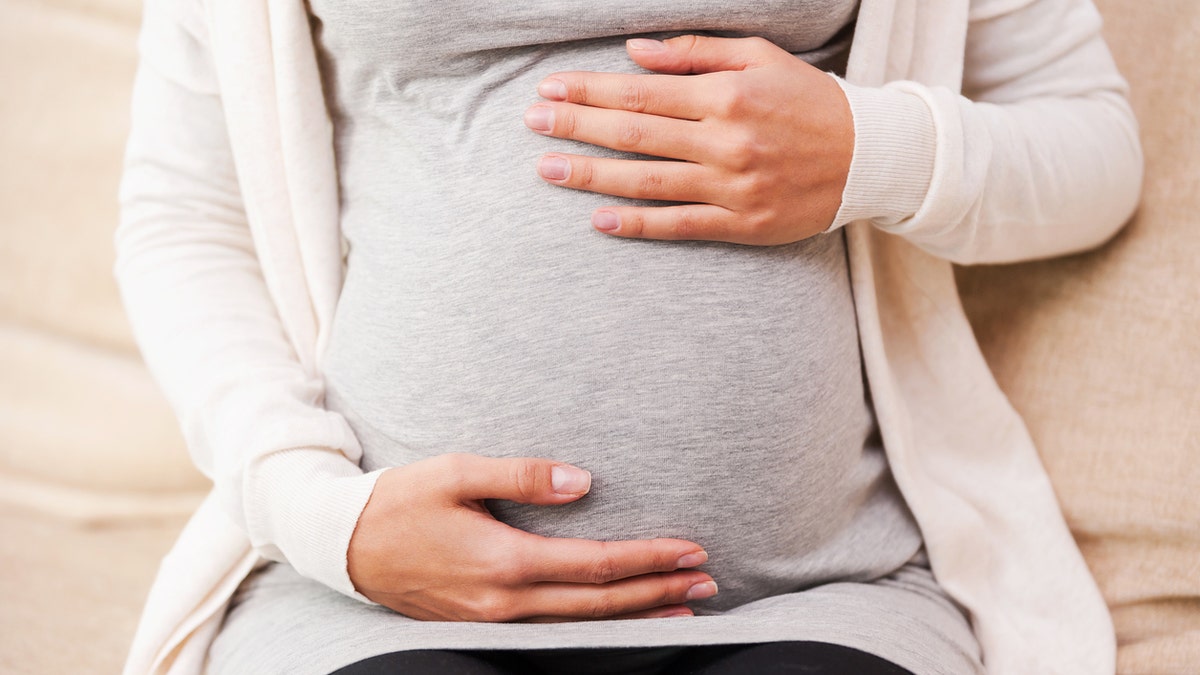
Should you call your doctor? (iStock)
With all of the hormonal, physical and emotional changes that happen during pregnancy, you’ve probably dealt with morning sickness, minor aches and pains and digestive woes.
Although most pregnancy symptoms are nothing to worry about, you might be unsure whether you should call your OB/GYN or midwife or maybe even worry that your call is an inconvenience.
In fact, 23 percent of women said they withheld asking questions because their providers might think they were being a nuisance.
Yet experts agree, it’s always a good idea to rule out something that could potentially affect the health of your pregnancy and get the peace of mind you deserve.
Here are the top 10 reasons you should call your provider.
1. Bleeding
It’s actually quite common for women to experience bleeding during pregnancy and most of the time, it’s nothing to be concerned about.
Bleeding during pregnancy is usually a result of both hormones and the increased vascularity of the cervix, said Tracy Donegan, a midwife in San Francisco and founder of GentleBirth.
Some women may notice spotting in early pregnancy that will go away, while others will continue to have spotting throughout their pregnancies. Sexual intercourse can also trigger bleeding.
Of course, bleeding can be a sign of a miscarriage or placenta previa, a condition that affects between 2 and 3 percent of pregnancies and can cause serious complications.
If you’re bleeding at any time in your pregnancy, it’s always a good idea to get checked by your doctor right away.
2. Pain
Many women will experience back pain, round ligament pain and leg cramps during pregnancy.
Pain in the middle of your back however, could be a sign of a kidney infection even if you don’t have pain when you urinate or a stronger-than-normal urge to go.
If you have severe, intermittent or constant pain, or pelvic pressure or abdominal cramps, especially late in your pregnancy, it could be a sign of premature labor.
Pain can also be a sign of placental abruption, a complication in which the placenta starts to separate off the uterine wall, said Dr. Alyssa Dweck, a board-certified OB/GYN in Mt. Kisco, N.Y., and author of “The Complete A to Z for Your V.”
3. Swelling
If you notice swelling in your hands, feet or face, it could be a sign of preeclampsia, a medical condition which affects between 5 and 8 percent of pregnancies.
Preeclampsia is diagnosed after 20 weeks of pregnancy and it can show up suddenly, even if you had no other problems up to that point.
4. Pee changes
If you notice that your urine is cloudy or has a strange odor, it could simply mean you’re dehydrated.
Yet if it persists, you could have a urinary tract infection, which left untreated could lead to pre-term labor.
5. Vaginal discharge or fluid loss
Leucorrhea—that mucus-like vaginal discharge you’ve noticed—is common during pregnancy. If however, you also have pain, odor or bleeding, you might have an infection.
If you have a watery discharge, your underwear is soaked or you feel a pop and a gush of fluid and you’re not close to your due date, you should call your provider who can rule out changes in your cervix and preterm labor.
6. Your baby’s movements
There’s no hard and fast rule about how many somersaults or kicks you should feel, but if you notice a change in the normal pattern of your baby’s movements after 28 weeks, put a call into your provider’s office.
If your baby isn’t as active, it might be because he’s sleepy or you’re dehydrated. But it could also be a sign that the umbilical cord is compromised so the sooner you get in to see your doctor, the better, Dweck said.
7. Itching
As your skin stretches to accommodate your growing baby, it’s normal for your skin to feel itchy.
But if you notice that the soles of your feet and the pads of your hands are extremely itchy, it could be a sign of a rare, but serious complication called cholestasis, a condition that causes a build-up of bile acids in the liver. Another sign that you may have cholestasis is if your bowel movements are pale-colored.
Since cholestasis can increase the risk for preterm labor, aspiration of meconium or fetal death, it’s important to call your doctor immediately.
8. Vision problems
During pregnancy you might have dry eyes or notice that your contact lenses don’t fit the same—two symptoms that shouldn’t be a concern.
If you have blurry vision, a loss of peripheral vision or see black dots however, it’s a good idea to get it checked because it could be a sign of preeclampsia.
9. Headache
Between lack of sleep, cutting back on caffeine, changes in your diet and stress, many women will complain of headaches during pregnancy. But if your headache persists, talk to your provider because it could also be a sign of preeclampsia.
10. Leg cramps
If you have cramps in your legs, walking and stretching can help. Your doctor may also recommend more potassium in your diet or even a calcium supplement.
However, if you have pain in your calf or behind your knee, or swelling and redness, you could have a blood clot.
If you’re unsure about calling your provider, trust your gut and know there’s no harm in seeking reassurance. “We want to be reassured as well that everything is going as it should be,” Donegan said.








































